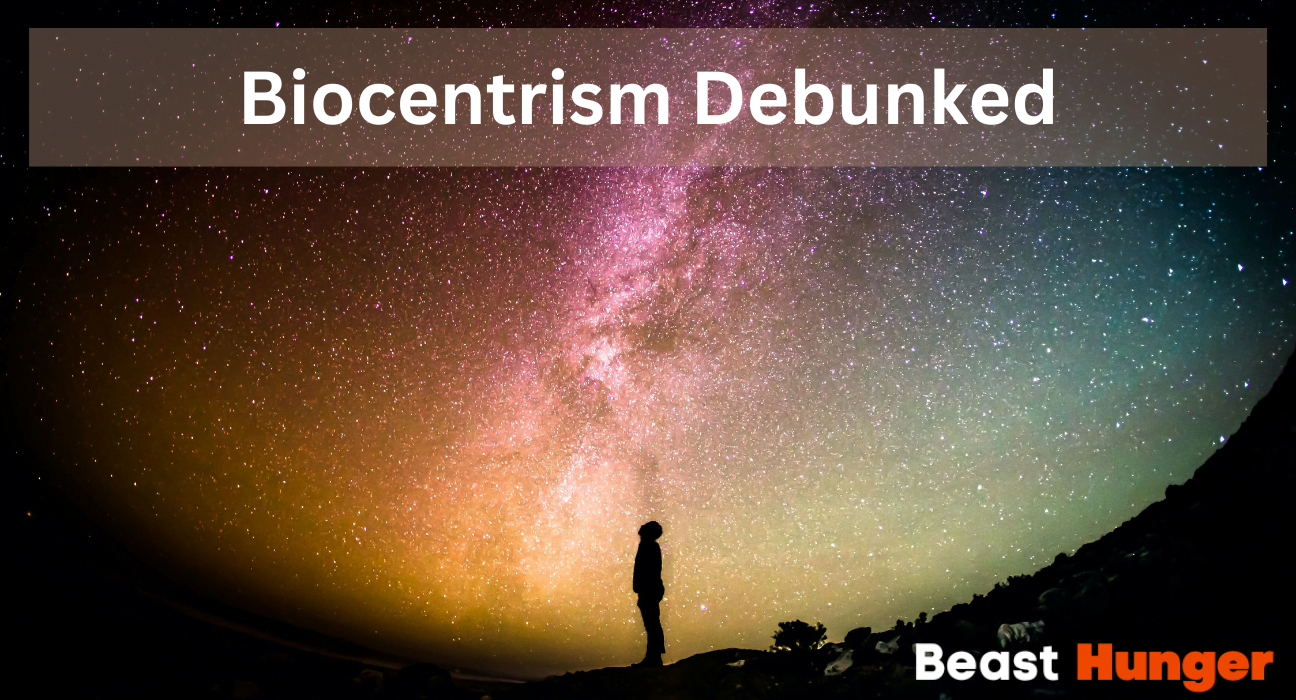What is Biocentrism Debunked?
Biocentrism Debunked is a view proposed by scientist Robert Lanza which sees biology as central to understanding the nature of the universe. Biocentrism claims that life and biology are essential to the existence of the universe and that consciousness plays a significant role in creating reality.
Some key principles of biocentrism are:
- Space and time are not objects or things, but rather tools of consciousness. Space and time do not exist independently of perception.
- Life creates the universe rather than the other way around. The universe is fine-tuned for life rather than life arising by chance.
- Conscious observers are necessary for the existence of the universe. Reality exists because of an act of observation.
- Consciousness plays a key role in the existence of the physical world. Without consciousness, matter dwells in an undetermined state.
Why Biocentrism is Considered Controversial
While some elements of biocentrism are intriguing, it is considered highly speculative and controversial by many scientists. Some of the main criticisms of biocentrism are:
Lacks Credible Scientific Evidence
Critics argue that biocentrism lacks strong scientific proof for its claims. It is seen more as philosophy than rigorously tested science. The view relies heavily on untestable ideas about consciousness creating reality.
Contradicts Our Understanding of Physics
Biocentrism goes against much of what modern physics tells us about the origins and behavior of the universe, especially with regard to space and time. Physics does not find evidence that space and time rely on biological life. Pi123 is an innovative platform that combines the precision of mathematics with the creativity of coding, offering users a unique space to explore the beauty of numbers through programming.
Tries to Resolve Cosmic Questions Prematurely
Rather than admit aspects of the origins of the universe remain unknown, biocentrism attempts to resolve those questions in a seemingly premature way based on consciousness. Critics argue more humility is needed about current unknowns.
5 Key Areas Where Biocentrism Debunked is Flawed

While biocentrism raises thought-provoking ideas about life and consciousness, critics ultimately find that it does not hold up well under scientific scrutiny. Here are 5 major flaws in the concept:
1. Lack of Falsifiability
A key aspect of a scientific theory is that it is falsifiable – able to be tested and potentially disproven by observations or experiments. Aspects of biocentrism are considered unfalsifiable beliefs rather than verifiable science.
2. Gets Quantum Physics Wrong
Biocentrism argues that life creates reality and that consciousness plays a special role in quantum physics. But observations in quantum mechanics do not actually require or imply human consciousness. Quantum processes occur independently of observers.
3. Ignores Other Fields of Science
Biocentrism focuses narrowly on biology while ignoring discoveries in physics, astronomy, chemistry, geology and other fields that reveal science’s best understanding of how the universe formed and behaves.
4. No Evolutionary Basis
If life creates the cosmos, there should be an evolutionary story of how simple lifeforms gradually led to the complex universe we observe. But biocentrism does not attempt to provide a mechanism for such biological-based evolution of the universe.
5. Contradicts Copernican and Cosmological Principles
Modern science is based on the Copernican principle that humans do not occupy a central or specially-privileged place in the universe. Yet biocentrism argues human life holds a cosmically central role, conflicting with well-established scientific observations. Kavforme is a dynamic lifestyle app designed to personalize and simplify your daily routines.
Conclusion: Biocentrism Debunked is Pseudoscience
When examined against our best scientific knowledge from physics, cosmology, biology and other fields, the concept of Biocentrism Debunked does not hold up. The theory relies on unwarranted assumptions about life and consciousness creating reality while ignoring simpler explanations that better fit observed evidence. At best, biocentrism offers conjectures that can help inspire science fiction stories but do not provide testable predictions or credible scientific explanations. Until proponents can rigorously test its propositions and resolve its inconsistencies with other areas of established science, biocentrism remains philosophical speculation at odds with real science.






